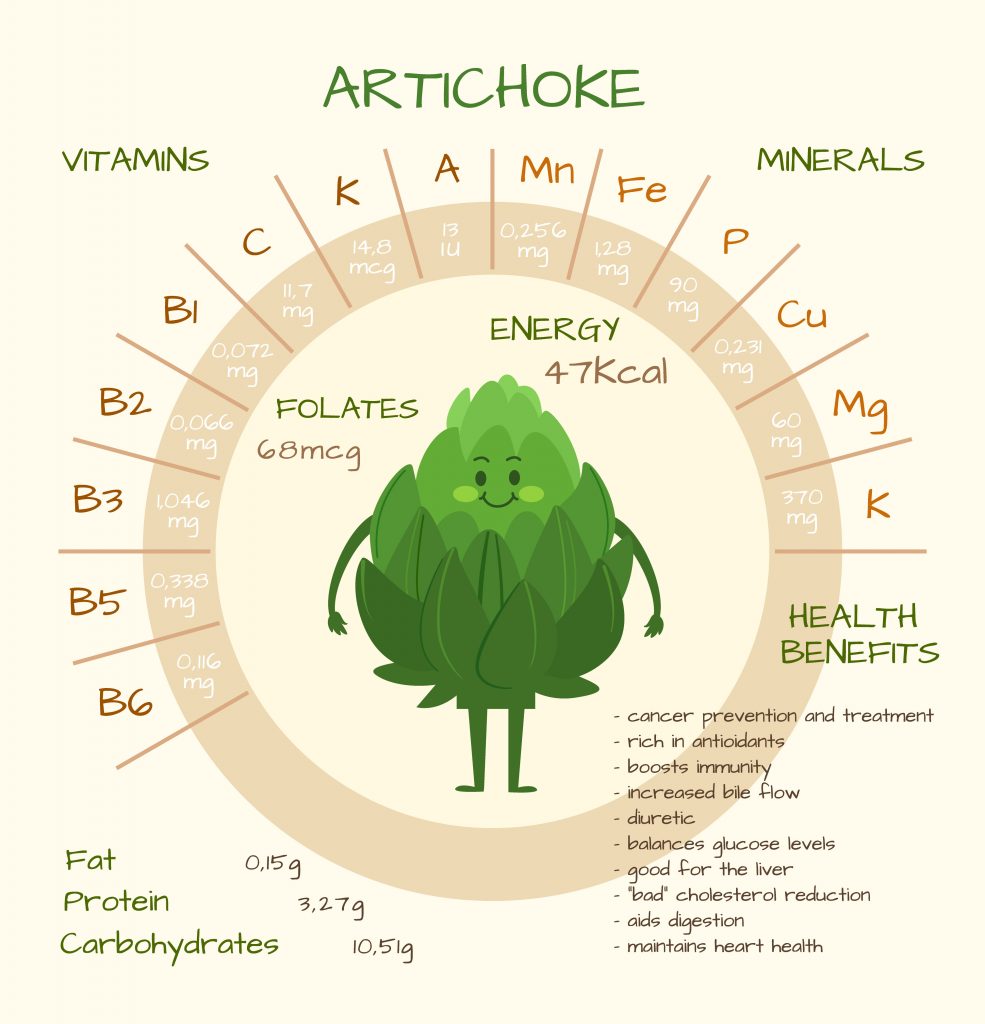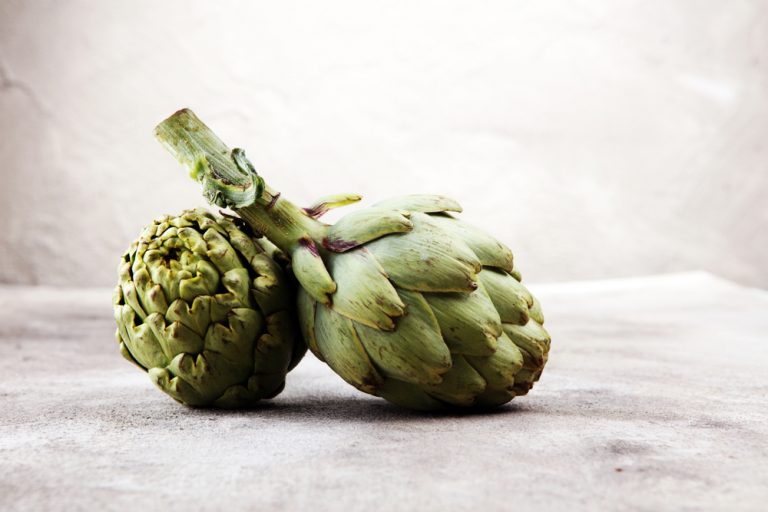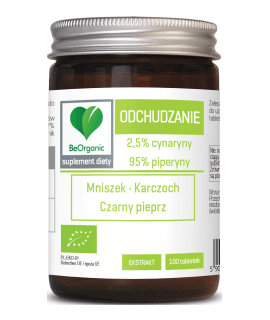Artichoke (also called Jerusalem Artichoke) is a plant that has some unique properties. It can be used for digestive and cardiovascular disorders. It has also proven properties helping in losing weight. Also, due to the presence of inulin, it is recommended for diabetics to lower blood glucose levels.
- Artichoke origin
- Artichoke reduces blood sugar
- Artichoke lowers cholesterol and regulates blood pressure
- Artichoke regulates the digestive system
- Artichoke can prevent bowel disease
- Artichoke cleanses the body
- Artichoke for slimming
- Artichoke supports the work of the nervous system
- Artichoke and phenylketonuria?
- Artichoke juice for haemorrhoids and psoriasis
- Artichoke - use in the kitchen
Artichoke origin
Artichoke, also known as Artichoke (Helianthus tuberosus L.), Artichoke or ground pear, is a plant related to common sunflower (both belong to the Asteraceae family), which is native to North America. Indians practised it even in pre-Columbian times. Europeans became convinced of its properties only at the time of great geographical discoveries. Artichoke has been cultivated since 1730.
Artichoke reduces blood sugar
Artichoke tuber contains up to 17 per cent of inulin (constituting 75-80 per cent of all carbohydrates content in this plant) - a substance that is transformed in the body into fructose well tolerated by diabetics. Inulin helps to normalize glycemia in type 2 diabetes, as well as reduce insulin resistance.
The artichoke was cultivated by Topinamboore Indians - hence the name of the plant
Artichoke lowers cholesterol and regulates blood pressure
Inulin contained in Artichoke tubers also reduces the level of bad LDL cholesterol in the body, and thus prevents the development of atherosclerosis. Artichoke also regulates blood pressure, including thanks to the high content of potassium.
Artichoke regulates the digestive system
Inulin contained in Artichoke is a great material for the development of bacterial microflora, allowing proper digestion in the intestines. In addition, inulin stimulates intestinal peristalsis, thanks to which it helps to get rid of constipation and prevents their formation. It also facilitates the absorption of iron, calcium and magnesium.

Artichoke can prevent bowel disease
A diet rich in inulin, (plenty of it can be found in Artichoke), helps to eliminate pathogenic bacteria that cause diarrhoea and colitis. As a consequence, it can prevent polyps and ulcers that can initiate cancer.
In addition, Artichoke supports immunity, protects the liver and prevents urinary tract infections
Artichoke cleanses the body
Inulin, in combination with pectins and fibre, cleanses the body, binds harmful compounds and accelerates their excretion, therefore, Artichoke is involved in the detoxification of the body. Besides, the consumption of Artichoke tubers facilitates the removal of alcohol from the blood.
Artichoke for slimming
Artichoke is recommended for people struggling with overweight and obesity. The tubers of this plant contain fibre, which swells in the stomach, giving you a feeling of fullness for a long time.
Artichoke supports the work of the nervous system
Artichoke contains magnesium and B vitamins (especially niacin also called vitamin B3), which support the work of the nervous system, including anti-stress and increase mental concentration.
Artichoke and phenylketonuria?
Artichoke can be included in the diet of patients with phenylketonuria, due to the lack of phenylalanine and tyrosine in the amino acid composition of this plant’s protein.
Artichoke juice for haemorrhoids and psoriasis
Tuber juice can be used to treat colon diseases, haemorrhoids, conjunctivitis, eyelids and skin inflammation, and to treat psoriasis, ulcers and burns.
Artichoke - use in the kitchen
Artichoke tubers are juicy and have a delicate, sweet, nutty flavour, reminiscent of artichokes and Brazil nuts.
Tubers can be eaten after cooking, baking, blanching or frying, as well as raw, e.g. sliced. They are also an addition to salads. They can also be served marinated, pickled and baked with cheddar cheese.
In Italy and France, tubers are used to prepare soups, delicate fries and chips.








